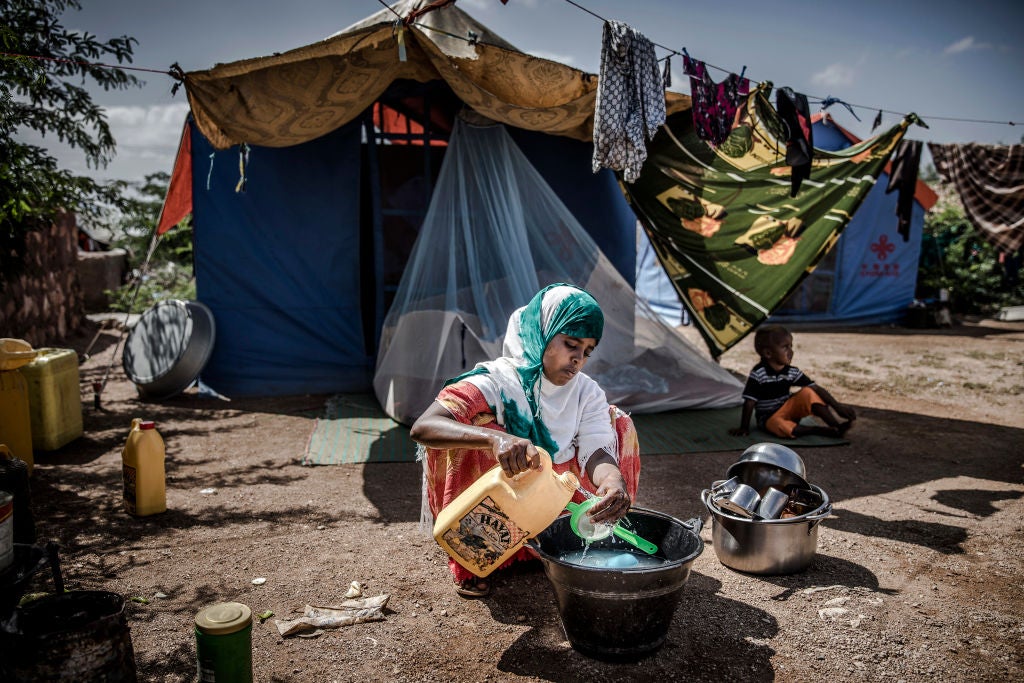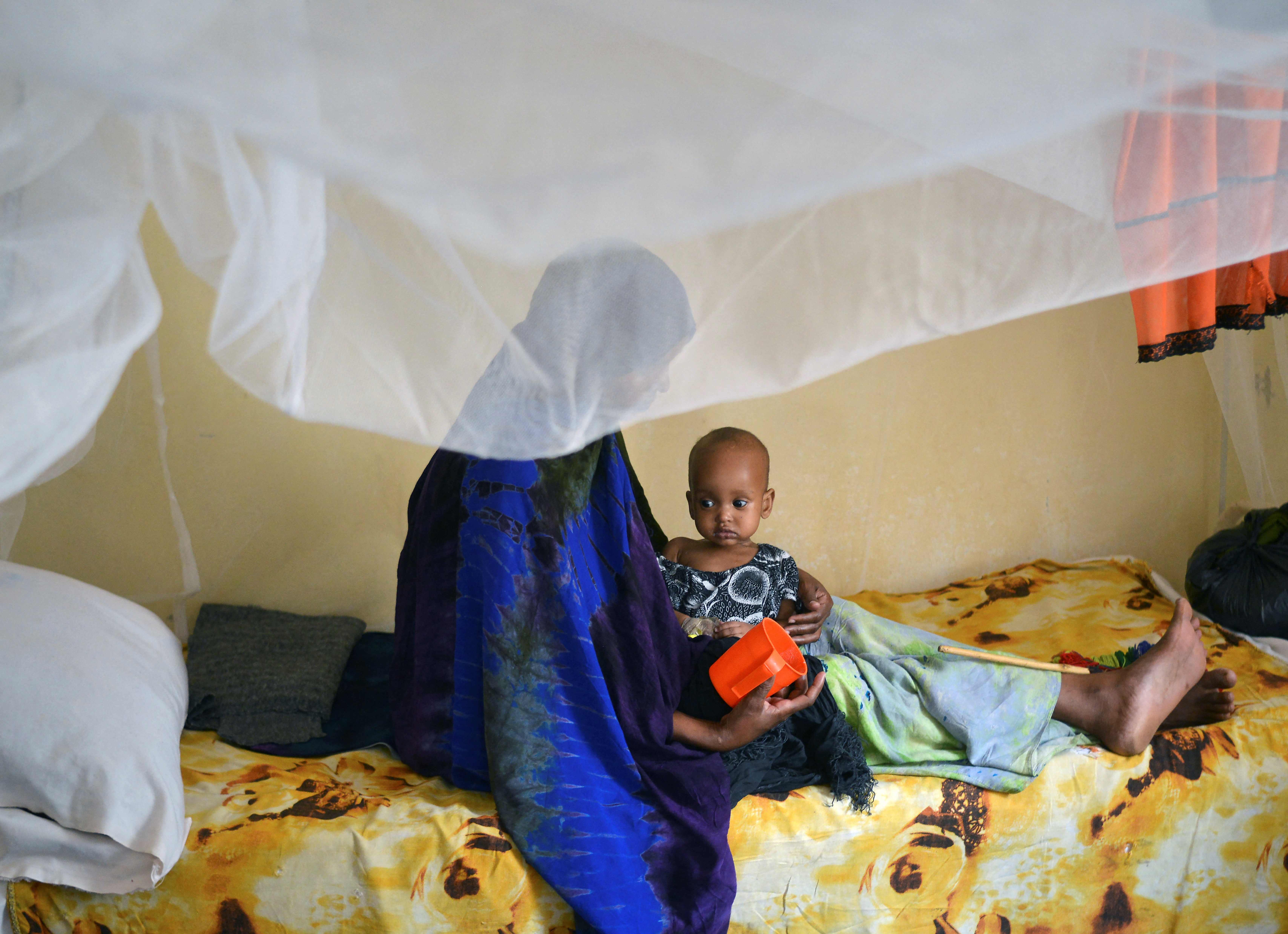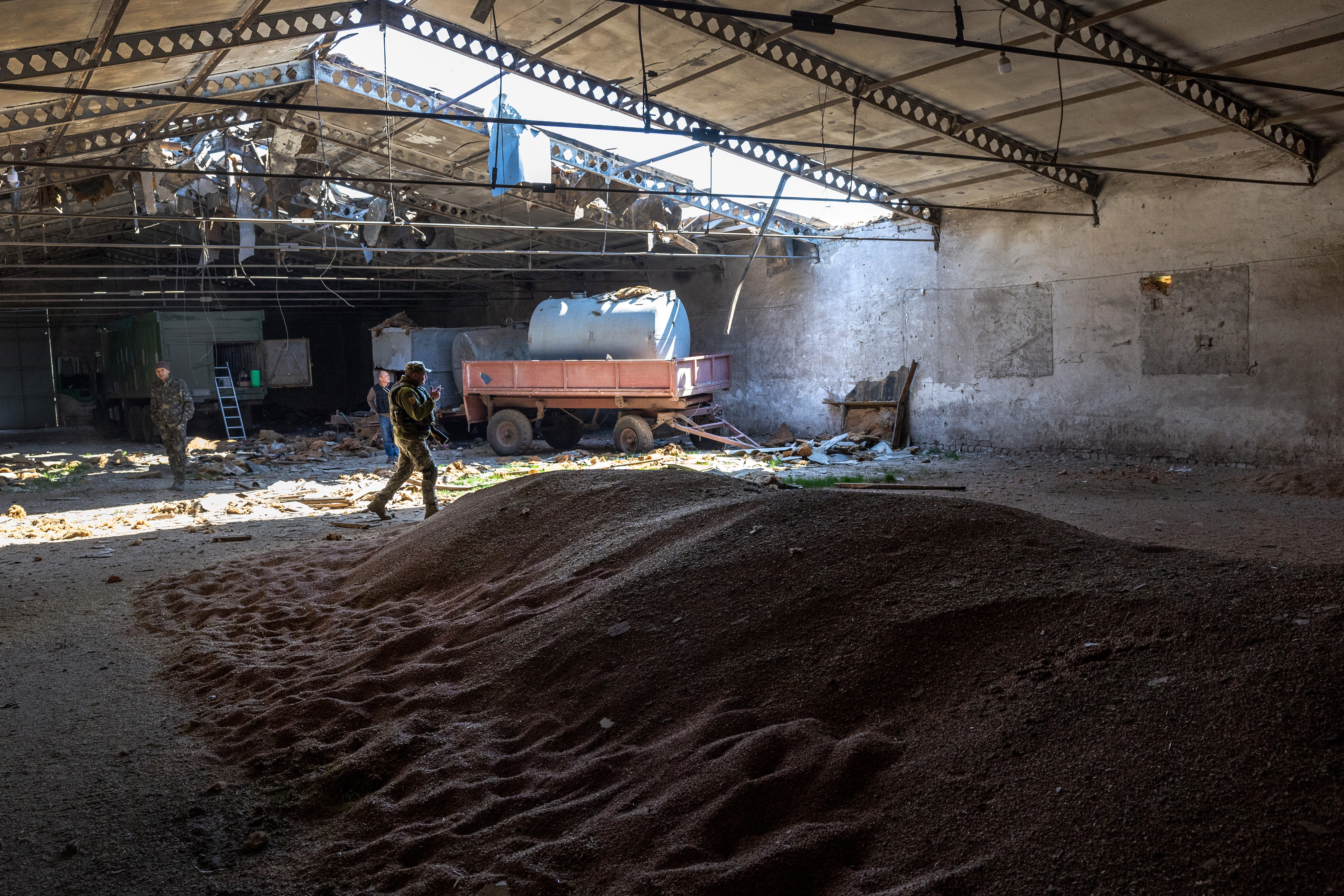
The world faces an unprecedented wave of famine and hunger triggered by a further “explosive” increase in food prices, experts have warned, after new figures revealed the extent to which the war in Ukraine will decimate global supplies of wheat.
Forecasts supplied exclusively to The Independent suggest that Russia’s brutal campaign, including its blockade of vital Ukrainian ports, is likely to cause even deeper disruption to food supplies than was previously feared.
Wheat production is now expected to be halved this year – a significantly worse outcome than previous forecasts predicted, said MHP, one of Ukraine’s largest exporters.
More worryingly, Ukraine will export less than a quarter of the amount of wheat it exported last year, according to the company.
If the forecasts prove to be accurate, the global market will be deprived of some 43 million tonnes of wheat – enough to cover the UK’s total consumption for almost six years.
The estimates, compiled in collaboration with Ukraine’s agricuture ministry, mean more disruption to global food supply chains, which could imperil the lives of millions of people in regions such as east Africa, which is heavily reliant on Russian and Ukrainian grain imports.
It would also put up prices for consumers in the UK, who are already facing a cost of living crisis that threatens to push 1.3 million people into absolute poverty.
The predictions come as the UN warned that the failure to open Ukraine’s ports and allow shipments of wheat and other vital commodities would amount to a “declaration of war on global food security”.
Matthew Hollingworth, the UN World Food Programme’s coordinator in Ukraine, said that the world now faced “an unprecedented crisis, an era-defining crisis”.
“It’s enormous. Food-insecure populations simply will not be able to afford their staple diet, which for many people is bread,” he said.
Ukraine’s cereal exports feed approximately 400 million people, including many in regions that cannot produce their own food. East Africa imports 90 per cent of its wheat from Ukraine and Russia. Oxfam estimates that one person is dying from hunger every 48 seconds in the drought-ravaged region.
Russia and Ukraine also contribute about two-thirds of the cereals imported by Libya and Egypt, and half of the cereals imported by Lebanon and Tunisia.

Eric Munoz, Oxfam’s senior policy adviser for agriculture, said that levels of hunger were rising before Russia invaded Ukraine, but the war had made the situation “catastrophically worse”.
“The populations most at risk are teetering towards famine,” he said, pointing to Somalia, Yemen and Afghanistan among others.
“People have very few options, and have exhausted their coping strategies, like selling their assets. We are also seeing very high levels of hunger in west Africa, and even middle-income countries like Lebanon.”
Around 25 million tonnes of grain are held in storage in Ukraine, clogging up vital space for this year’s harvest, which begins in just six weeks.
Fears are growing that farmers who cannot sell their crops because of the Russian blockade will plant less this year, compounding the global shortage.

Even if Russia agreed to lift the blockade, it would take months before shipments out of Ukraine could resume at anything like previous levels, Mr Hollingworth explained.
Clearing mines and the debris of sunken vessels near ports such as Odesa would be “extremely complicated and resource-heavy”, he said. Businesses may also be reluctant or unable to move goods because of ongoing security fears and the difficulty of obtaining insurance.
UN secretary general Antonio Guterres warned this week that there is “no effective solution to the food crisis without reintegrating Ukraine’s food production”.
However, industry leaders in Ukraine are becoming increasingly pessimistic about the prospect of the ports reopening to trade this year, and say that overland routes through Poland and Romania can take barely a quarter of the amount that is normally shipped.
MHP, one of Ukraine’s largest exporters of wheat, now forecasts that production will reach barely half of last year’s level, with the winter harvest being slashed by some 20 million tonnes and the summer harvest down by 35 million tonnes.
MHP estimates that a fifth of Ukraine’s grain storage capacity – some 15 million tonnes – has been destroyed or occupied by the Russian army, further complicating efforts to restart exports from a region that supplies 29 per cent of globally traded grain.
“It’s a serious situation,” said John Rich, chair of MHP’s board. “We are coming out of the back of the pandemic, we’ve got a war, climate change, and China is blocking up its ports, causing logistics problems.
“So you’ve got the four horsemen of the apocalypse rampaging through the global supply chain.”
If Russia does not end its Black Sea blockade, the world could be locked into a “dangerous spiral” of lower food production and increased protectionism, Mr Rich said, pointing to India’s recent decision to block exports of wheat during a historic heatwave.
“For the first time, I can’t see a light at the end of the tunnel.”
Global wheat prices have soared 54 per cent this year and are set for a further “explosive rally” if there is any additional shock to supplies, said Paul Hughes, chief agricultural economist at S&P Global Commodity Insights.
Russia’s invasion has disrupted supplies in “a huge way”, he said. “With the supply reductions that have taken place since the Russian invasion, and associated loss of Ukrainian exports, the world cannot afford any significant loss in supply below current expectations.”
He added that inventories of wheat in the main exporting nations were already “exceedingly tight” this year, with stocks lower than at any point since the last surge in food prices in 2008.
“There is no question the current situation puts tremendous strain on the consumers in low-income countries, and their governments,” Mr Hughes said.
World leaders have been scrambling for a solution to allow food out of Ukraine, with consensus building that urgent action is needed. But a farming industry source with knowledge of the situation in Odesa, Ukraine’s main port, said there was “almost no chance” of an agreement being reached to relax the port blockade.
The Kremlin has said it will not consider any agreement unless western sanctions on Russian businesses and oligarchs are removed. That demand is likely to be seen as being off limits by European and US governments, who have been seeking to turn the screw on Vladimir Putin’s political allies and the Russian economy.







